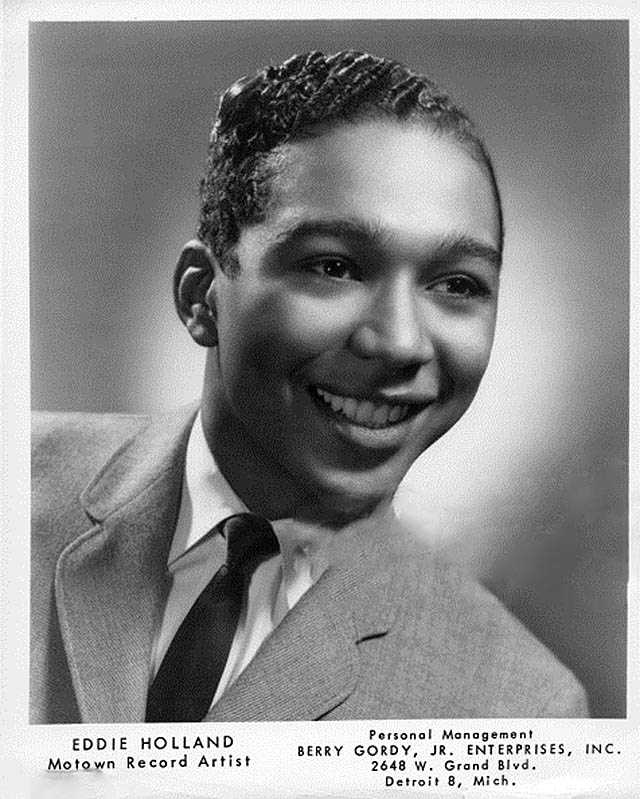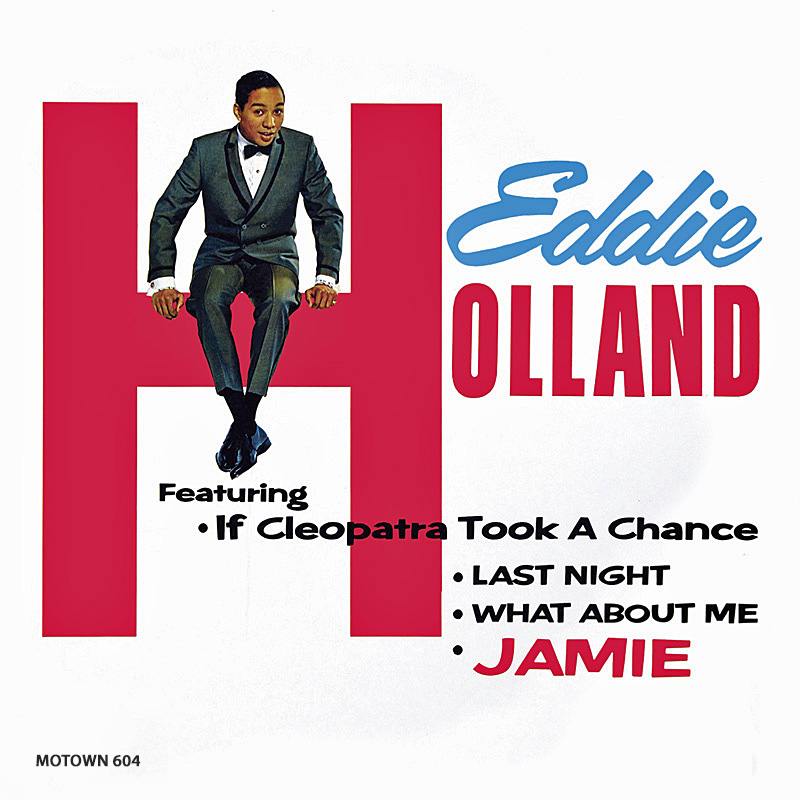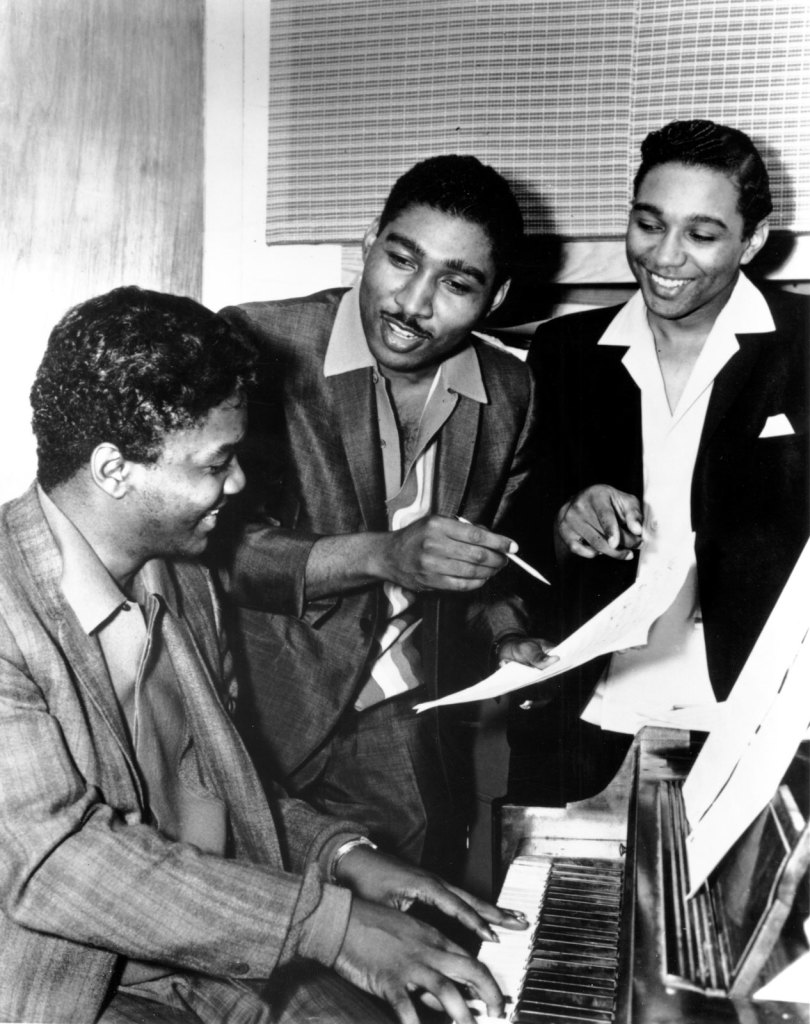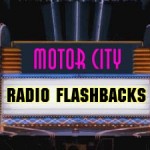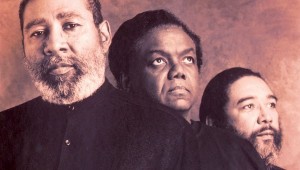 Three Years in the Making, Holland, Dozier, Holland, Established Top Hit Makers at Motown Records Today
Three Years in the Making, Holland, Dozier, Holland, Established Top Hit Makers at Motown Records Today
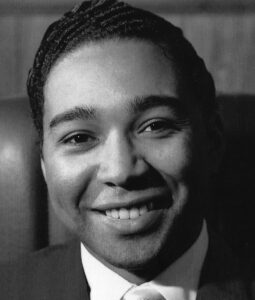
The team of Lamont Dozier-Brian and Eddie Holland produced nine releases in 1965 and “8-eight-8,” I said eight of these records, made the Top 10, both pop and R&B.
In the last three years, they have produced (and written) a minimum of “15 fifteen-15 Top 10″ pop and R&B” records. The sales on “I Can’t Help Myself” by the Four Tops are over one million, four hundred thousand; sales on “Where Did Our Love Go” by the Supremes are over one million-two hundred thousand. Berry Gordy himself, who scored in the poll, did one hit on his own last year - “Shotgun.” So now Motown made Brian Holland a Vice President - to me, it’s all three together. I just went out to Detroit and they told me how they do it.
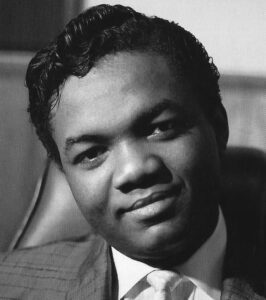
Brian and Lamont sit down at a piano to riffle a taste. They keep thinking and thinking, and reaching and searching for a definite melody line - the “handle.” They usually work together this way for about a half an hour. They will discard quite a few ideas, and then will take out anything that they feel is extraneous. Their goal is always naked simplicity, and when they achieve that, then they strip that down even more, if possible. The basic criterion is always “pleasantness to the ear.” Then they turn the melody and a “working title” over to Holland. Different situations will vary from time to time.
The soul emanates from within them as they write. The soul is the quintessence of all they ever were and are. They draw upon a “Soul Fund” that includes: familiarity with ALL classical and semi-classical music; their cultural heritage as Negroes; and much of the Hebraic-Judaic musical literature.
As children, they sang in church choirs, and thus know almost all the spirituals and work and folk song of their people. They benefited from a cultural enrichment program that has existed in the Detroit school system for years. Their teachers took them to many classical concerts.
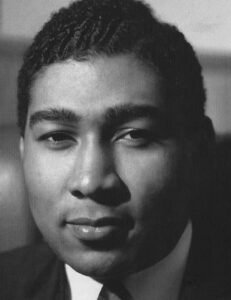
I was reminded of the great autobiographical play by the Welsh actor, Emlyn Williams, “The Corn Is Green,” when Eddie Holland said to me, “Kal, the first time I heard Brahms and Beethoven, I felt as if a giant force had lifted me up from the poverty and misery around me, up a steep wall, until I could see stretching out in front of me an expanse of green grass and a whole new world of beauty.”
They will thrill all their lives to the greatness and genius of these music titans of centuries past. They cannot pinpoint any particular melody of theirs to any one source. However, the emotional mainspring that drives their creativity is evolved from the “most hurtin’, tore-up peoples that the world has ever known.” I asked VP Brian Holland which of their songs move them the most. He told me that he is still moved to tears by: “I Can’t Help Myself”; “Stop In The Name Of Love”; and especially “I Hear A Symphony.”
I asked them who is their favorite writing team. I knew before they answered that they would say “Music by Burt Bacharach and words by Hal David.“
KAL RUDMAN’S ‘MONEY MUSIC‘
_______________
Information, credit and news source: Record World, January 15, 1966
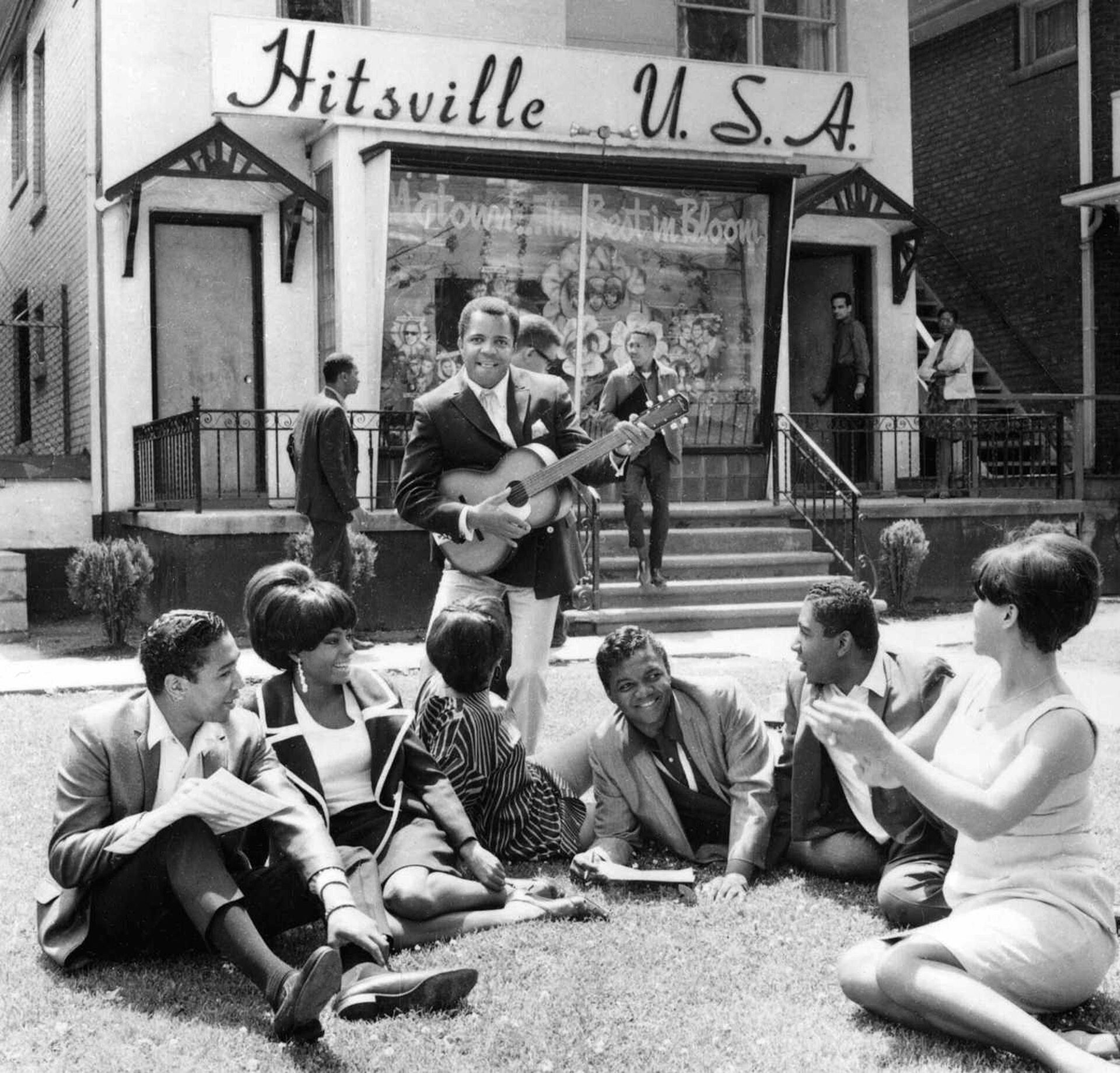
206 total views



